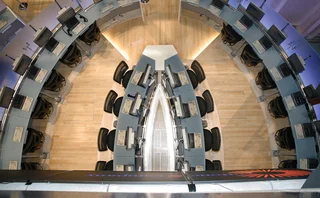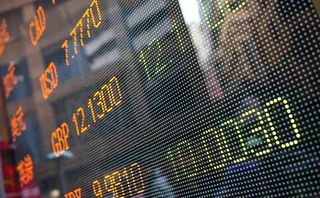
Merger arbitrage hedge funds bank on M&A resurgence
The resurgence in M&A volumes should be good news for merger arbitrage hedge funds. Though deal spreads remain tight, the growth in transactions in Q1 is fuelling expectations of higher returns.

A notable up-tick in corporate deal-making in the first quarter is fuelling expectations of better returns for merger arbitrage funds over the coming months.
Global mergers and acquisition (M&A) volume hit $809 billion in the first three months of 2011, up 28% from $634 billion a year ago, according to data from Dealogic.
US deal volume grew an astonishing 62% to $329 billion from $204 billion in
Only users who have a paid subscription or are part of a corporate subscription are able to print or copy content.
To access these options, along with all other subscription benefits, please contact info@risk.net or view our subscription options here: http://subscriptions.risk.net/subscribe
You are currently unable to print this content. Please contact info@risk.net to find out more.
You are currently unable to copy this content. Please contact info@risk.net to find out more.
Copyright Infopro Digital Limited. All rights reserved.
As outlined in our terms and conditions, https://www.infopro-digital.com/terms-and-conditions/subscriptions/ (point 2.4), printing is limited to a single copy.
If you would like to purchase additional rights please email info@risk.net
Copyright Infopro Digital Limited. All rights reserved.
You may share this content using our article tools. As outlined in our terms and conditions, https://www.infopro-digital.com/terms-and-conditions/subscriptions/ (clause 2.4), an Authorised User may only make one copy of the materials for their own personal use. You must also comply with the restrictions in clause 2.5.
If you would like to purchase additional rights please email info@risk.net
More on Strategy
CTAs beat hedge fund rivals in 2014
Investors hope that CTAs’ fortunes have changed for good
Multi-strategy hedge fund assets surpass $400 billion
Investors flock back to strategy after years of trickling inflows
Hedge funds cautious on Argentina
How might hedge funds take advantage of opportunities in Argentina?
Hedge funds face growing risk, technology and data challenges
Sponsored feature: Broadridge Financial Solutions
A promising future
Sponsored statement: NYSE Liffe
Government bond traders see difficult markets heading into 2014
Your word is my bond
Hedge funds increase Asia quant investing risk capital by 50%
An improved Japan economy is ramping up quant investor activity across Asia
CTA trend followers suffer in market dominated by intervention
Return to normality








